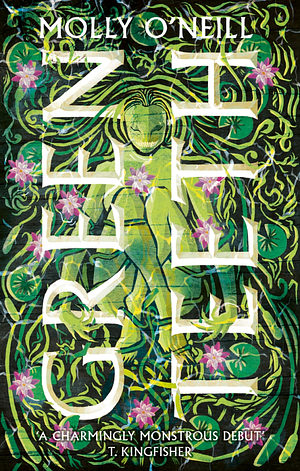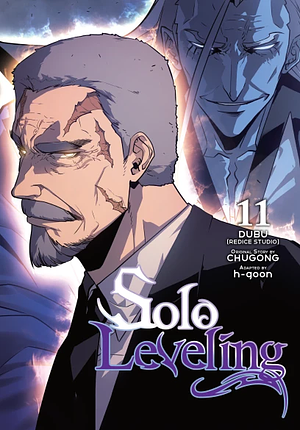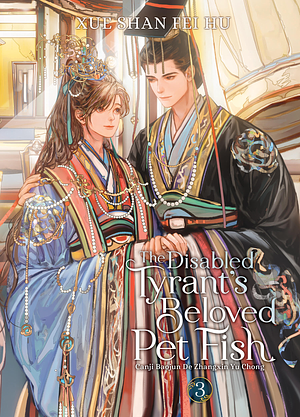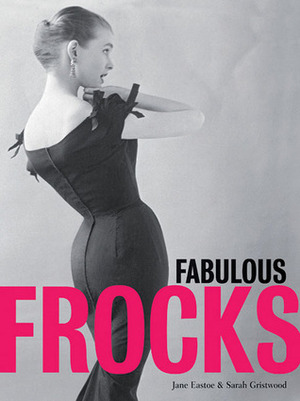Posted January 13, 2026 by Nicky in Reviews / 0 Comments

Henrietta Who?
Genres: Crime,
Mystery Pages: 248
Series: Calleshire Chronicles #2 Rating: 
Synopsis: A hit-and-run murder unearths a case of mistaken identity in this “well-bred, well written and genuinely superior” mystery by the Diamond Dagger winner (Kirkus Reviews).
Early one morning in the quiet English village of Larking, the body of a woman named Mrs. Jenkins is found in the road. Miles away, her daughter, Henrietta, receives the bad news while working in the university library. Poor Mrs. Jenkins appears to have been the victim of a horrible car accident.
When an autopsy proves not only that this was no accident but also that Mrs. Jenkins had never had a child, young Henrietta’s life is thrown upside down. If she’s not Mrs. Jenkins’s daughter, then who is she? It’s up to Detective Inspector C. D. Sloan of the Calleshire police force to bring the murderer to justice—and a sense of order back to Henrietta’s life.
Proclaimed by the New York Times in 1968 to be one of the year’s best books, Henrietta Who? is a first-order English whodunit that’ll keep you guessing until the end.
Catherine Aird’s Henrietta Who? is a pretty typical classic crime story. I found it a bit flatter than the first in the series, with a bit less warmth somehow — especially since it’s weirdly very dismissive about the bond between adoptive parents and adopted children, somehow. Henrietta immediately stops referring to the dead woman as her mother, which threw me a bit. Trauma makes sense, but… I don’t know.
Anyway, the whodunnit was something I worked out from a variety of clues and the way the story was shaped, and doing that was pretty fun — it’s a fair-play mystery, I think, and if you read enough of these you start getting a spidey-sense for it.
Not a favourite, but a pleasant enough read.
Rating: 3/5 (“liked it”)
Tags: book reviews, books, Catherine Aird, crime, mystery
Posted January 12, 2026 by Nicky in Reviews / 4 Comments

Greenteeth
Genres: Arthuriana,
Fantasy Pages: 279
Rating: 
Synopsis: Narrated by a lake-dwelling monster, Greenteeth is an utterly charming tale of fae, folklore and found family, perfect for fans of T. Kingfisher.
Beneath the still surface of a lake lurks a monster with needle sharp teeth. Hungry and ready to pounce . . .
Jenny Greenteeth has never spoken to a human before, but when a witch is thrown into her lake by an angry mob, something makes Jenny decide she’s worth saving. Temperance doesn’t know why her village has suddenly turned against her, only that it has something to do with the malevolent new pastor. All she wants is to return to her husband and children, still trapped under his baleful influence.
Though they have nothing in common, these two unlikely companions must band together on a magical quest to defeat the evil that threatens Temperance’s family, Jenny’s lake, and possibly the very soul of Britain.
This review seems to have missed getting posted back when I read the book, so I’m surfacing it now!
Molly O’Neill’s debut Greenteeth was a delight to me. I didn’t know about “Jenny Greenteeth” as a type of monster, but I recognised much of the rest of the folklore and legends referenced, and was pleased (and honestly, relieved) to see the Welsh spellings used. I imagine people are complaining about the author not anglicising for their benefit, but I liked it a lot.
I loved the way that the “twist” at the ending was seeded through the rest of the story, if you go back and look. There’s a Chekhov’s gun, there are references that set it up, there’s the presence of Cavall… there are so many hints, at least if you know your folklore and legends.
If people are curious about what they may have missed, here are some of the spoilers that made it somewhat obvious what was coming. On my blog this should let you click to expand; hopefully it won’t post in clear text in the email notifications, but if it does, consider this your warning!
View Spoiler »
1. Chekhov’s gun: or should that be Chekhov’s sword? Tossed into Jenny’s pond at some stage…
2. Chipping Appleby, “bound to be an elf door with all these apple trees around”: Avalon is the Isle of Apples;
3. Twrch Trwyth: the boar from The Mabinogion is giving you yet another clue that you’re in an Arthurian story;
4. Cavall: King Arthur’s hound, likewise;
5. Durandal or Excalibur could do the job: gee, I wonder what Jenny’s carrying around;
6. Creiddylad literally says it reminds her of quests in King Arthur’s court;
7. Jenny meets the afanc: again, another clue you’re in Welsh mythology, and specifically Arthurian;
…Okay, I stopped counting here!
« Hide Spoiler
There were some things that dragged a bit for me (the argument between Temperance and Jenny) or didn’t quite ring true — I feel like I could’ve stood to understand a bit more about Brackus’ decision to join Jenny and Temperance — but mostly I just enjoyed the ride.
Rating: 4/5 (“really liked it”)
Tags: Arthurian, book reviews, books, Molly O'Neill, SF/F
Posted January 11, 2026 by Nicky in Reviews / 0 Comments

Solo Leveling
Genres: Fantasy,
Manga Pages: 312
Series: Solo Leveling #11 Rating: 
Synopsis: After saving Jinho from the vengeful Dongsoo Hwang, Jinwoo makes a public declaration that he will protect his family and friends no matter what. But when a close ally is killed in a sudden attack by the otherworldly Monarchs, Jinwoo is forced to reexamine who it is he wants to protect—and just how far he’ll go to do so.
It’s difficult at this point — volume 11 — to say stuff about the Solo Leveling manhwa that doesn’t risk being either spoilery or obvious. As usual, Jinwoo’s ridiculously OP, and it’s glorious to see. We get a bit more info about Jinwoo’s dad and what’s to come, and we get some big badass new enemies for him (who he immediately trashtalks, love him).
I did feel a bit sad for Jinho when Jinwoo referred to someone else as his “only” friend, though! Unless there’s something weird going on with the translation, that seems unfair. Not that Jinho heard it, but still, ouch.
I must admit that the (frequent) fight scenes usually don’t do a lot for me because I’m not great with visual interpretations, so I love when Jinwoo stops to strategise, or others comment on his fights. It’s quite the spectacle, just not something I find visually very useful.
Rating: 4/5 (“really liked it”)
Tags: book reviews, books, Chugong, Dubu, SF/F
Posted January 9, 2026 by Nicky in Reviews / 1 Comment

The Far Edges of the Known World: A New History of Ancient Civilisations
Genres: History,
Non-fiction Pages: 314
Rating: 
Synopsis: When Ovid was exiled from Rome to a border town on the Black Sea, he despaired at his new bleak and barbarous surroundings. Like many Greeks and Romans, Ovid thought the outer reaches of their world was where civilisation ceased to exist. Our fascination with the Greek and Roman world, and the abundance of writing that we have from it, means that we usually explore the ancient world from this perspective too. Was Ovid's exile really as bad as he claimed? What was it truly like to live on the edges of these empires, on the boundaries of the known world?
Taking us along the sandy caravan routes of Morocco to the freezing winters of the northern Black Sea, from Co-Loa in the Red River valley of Vietnam to the rain-lashed forts south of Hadrian's Wall, Owen Rees explores the powerful empires and diverse peoples in Europe, Asia and Africa beyond the reaches of Greece and Rome. In doing so, he offers us a new, brilliantly rich lens with which to understand the ancient world.
Thanks to archaeological excavations, we now know that the borders of the empires we consider the 'heart' of civilisation were in fact thriving, vibrant cultures – just not ones we might expect. This is where the boundaries of 'civilised' and 'barbarians' began to dissipate; where the rules didn't always apply; where normally juxtaposed cultures intermarried; and where nomadic tribes built their own cities.
Owen Rees’ The Far Edges of the Known World was a random choice from the library, and I had a good time with it. The premise is that we know a lot about the Greeks, Romans and Egyptians, and how they viewed the other peoples they bumped up against (and sometimes invaded), but most of what we know about those other peoples is what the Greeks, Romans and Egyptians have recorded.
But of course there’s more there in archaeology, in other accounts, and by reading between the lines. Rees doesn’t dig deeply into any one location/group of people, and is careful to note the limitations of the evidence he does discuss, but he does his best to give us a less biased picture of these other worlds.
It’s hard to pick a favourite, but I think maybe the stuff about the various areas in Ukraine. It’s a part of the world I haven’t read much about in general, but which has come up in a few recent books, and broadened my horizons a little!
I mostly found the book very accessible, but did find toward the end that my attention kept wandering for some reason; I think that was me, and not the book — Rees’ writing is fine and easy to read.
Rating: 4/5 (“really liked it”)
Tags: book reviews, books, history, non-fiction, Owen Rees
Posted January 8, 2026 by Nicky in Reviews / 2 Comments

Spinosaur Tales: The Biology and Ecology of the Spinosaurs
Genres: Non-fiction,
Science Pages: 320
Rating: 
Synopsis: Spinosaur Tales explores the exciting, sometimes controversial world of spinosaurs. Bringing this creatures back to life with stunning illustrations, world renowned palaeontologists David Hone and Mark P. Witton present the latest views on the evolution, anatomy and lifestyles of these enigmatic reptiles.
I don’t know a lot about spinosaurs — they’re not a dinosaur I ever personally fixated on — but I was definitely keen to pick up Spinosaur Tales based on previous books by David Hone. It’s pop-science, but it’s thorough and well-sourced all the same: as the authors are careful to point out, it’s a rapidly-changing field due to a lot of interest in spinosaurs, and some of the information might already be out of date by the time the book was printed, let alone whenever it finds its way to new readers. They ground their interpretations in the known facts, and explain when things might change due to new evidence, in general — it’s all pretty conscientious.
Since I didn’t know much about spinosaurs going in, there was a lot to learn: I hadn’t realised that Baryonyx was a spinosaur, for example, and I had no idea that the spinosaurs include some of the largest theropods in general. I also hadn’t thought much about how dinosaur eyes would look, and… it makes sense, but not how I had somehow imagined!
The authors do well at contextualising stuff so you can understand regardless of whether you’re a spinosaur superfan (or a dinosaur superfan in general); some of it probably feels repetitive if you’re familiar already, but for me, I needed the detailed grounding in what we actually know about spinosaurs. I’d probably have lumped them in with Dimetrodon based on the ‘sail’, I must confess…
Witton’s illustrations add a lot too, though I’m still kinda wondering what a lipped dinosaur would’ve looked like and how it compares to common illustrations (since they convincingly suggest that spinosaurs at least probably had lips).
Really fascinating, and clear too.
Rating: 4/5 (“really liked it”)
Tags: book reviews, books, David Hone, Mark P. Witton, non-fiction, science
Posted January 5, 2026 by Nicky in Reviews / 0 Comments

Still Waters
Genres: Crime,
Mystery Pages: 237
Series: British Library Crime Classics Rating: 
Synopsis: Trouble is brewing once more for the Hoggetts and their friend Chief Inspector Macdonald in Lunesdale, deep in the Lancashire fell country. The treacherous slopes and still waters of a quarry pool have become the backdrop for strange happenings by night, and after an architect surveying the area is nearly hoisted into the cold waters by an unseen assailant, the suspicions of local farmers become a matter for the CID. Lorac’s authentic writing of the Lunesdale countryside is paired with a twisting plot in this classic of Lake District crime fiction, first published in 1949.
E.C.R. Lorac’s Still Waters is another return to Lunesdale for Macdonald. It’s a bit surprising that there are several books sharing the same setting and characters, because a lot of the other books are pretty disconnected, with just Macdonald and Reeves recurring. In this one, the Hoggetts are almost the stars, particularly Giles.
It’s pretty suspenseful actually; there are a couple of tense chapters at the end where Macdonald, Reeves and several others are staking out an area to figure out what’s going on and (hopefully) catch the criminals. I’d figured out what was going on already (it’s a fair-play mystery, pretty much) but it was still really tense because it wasn’t clear whether something would go wrong, whether they’d get their guy, etc. I don’t mind having figured things out anyway, but that definitely didn’t defuse any of the tension here.
It makes fun use of the setting, which Lorac knows well because she eventually settled in the area she based the story on, and apparently it was checked by a police officer as well, which shows she did her research.
One note: one of the characters is deeply anti-Welsh. He’s corrected/ignored by other characters, but the Welshman is still very much viewed as a “foreigner” and with automatic suspicion, which is a bit uncomfortable, if not surprising.
Rating: 4/5 (“really liked it”)
Tags: book reviews, books, British Library Crime Classics, crime, mystery
Posted January 4, 2026 by Nicky in Reviews / 0 Comments

The Disabled Tyrant's Beloved Pet Fish
Genres: Fantasy,
Light Novels,
Romance Pages: 404
Series: The Disabled Tyrant's Beloved Pet Fish #3 Rating: 
Synopsis: A FINE KETTLE OF FISH
When Prince Jing is sent to quell the disturbance at the western border, there’s no question that Li Yu will accompany him—as his boyfriend and as his pet fish! Li Yu’s mission is to help Prince Jing secure his position as heir to the throne. However, the new couple is in for a surprise when Li Yu makes a much bigger splash in the imperial line of succession: even male fish can lay eggs now!
With four bouncing baby fish in tow, Li Yu and Prince Jing must work extra hard to dam the trouble brewing at the border. Despite the challenges, Prince Jing is determined to make Li Yu his official consort. Will the emperor approve of this unusual union? And how will Li Yu and Prince Jing protect their new family from the treacherous machinations of the imperial court?
Volume three of Xue Shan Fei Hu’s The Disabled Tyrant’s Beloved Pet Fish gives us Li Yu and Prince Jing’s trip to the borders — ostensibly out of the emperor’s favour, but ready to prove themselves and (in Prince Jing’s case, anyway) ready to make a good case that they should be given official sanction to marry. Plus, the system’s tricked Li Yu, and now there are babies on the way!
How this volume hits depends on how you feel about Li Yu and Prince Jing having kids, basically. There’s some other politicking, and some development in their relationship (including their marriage), but the babies are a pretty major feature, especially in the second half of the book.
For me, I thought it was adorable. I love the emperor’s reaction to them, I love Li Yu and Prince Jing’s growing excitement about and love for the babies, and I had so much fun with the babies’ silly hijinks as well. And I loved that Prince Jing and Li Yu are growing into themselves and maturing as a couple as well (though Li Yi remains a precious cinnamon roll).
I know a little about how the story ends, and I’m looking forward to volume four very much. It’s silly and a ridiculous concept and satisfying as heck.
Rating: 4/5 (“really liked it”)
Tags: book reviews, books, danmei, light novels, romance, SF/F, Xue Shan Fei Hu
Posted January 3, 2026 by Nicky in Reviews / 0 Comments

Love in the Palm of His Hand
Genres: Manga,
Romance Pages: 224
Series: Love in the Palm of His Hand #2 Rating: 
Synopsis: Through sign language and acting, two young men seeking their places in the world discover a connection that transcends the spoken word.
"I could only return to acting because there's someone who believes in me."
Fujinaga is determined to give acting one last try as he performs in a stage play adaptation of a manga series, but his nerves get the better of him when he realizes that Keito will be there in the audience. While Fujinaga's talent is finally garnering him some public recognition, his worries and loneliness begin to eat him up from the inside. Can the special language he and Keito share form a bridge between them and help him resolve his frustrations?
For Keito and Fujinaga, sign language will light the way along their journey of self-discovery and bind them together as nothing else can.
Like the first volume, the second volume of Rinteku’s Love in the Palm of His Hand is really cute, though it focuses a bit less on the relationship between Keito and Fujinaga, and a bit less on sign language as a result, and spotlights Fujinaga’s acting career.
Fujinaga has a pretty amazing opportunity, and he spends a lot of it figuring out how to bring across the play for the whole audience, but his relationship with Keito isn’t forgotten — even if they don’t seem to be 100% on the same page about it (there’s a weird mismatch in expectations about kissing, for instance).
I actually liked the art better in this volume, or maybe I was just used to it? And I still love the way sign language is portrayed, and the various ways Keito manages to communicate.
I’d love to see them get a bit more comfortable with being in a relationship in the next volume, but I was glad to spend more time with them in this one, too!
Rating: 4/5 (“really liked it”)
Tags: book reviews, books, manga, Rinteku, romance
Posted January 2, 2026 by Nicky in Reviews / 0 Comments

Finding My Elegy: New and Selected Poems
Genres: Poetry Pages: 196
Rating: 
Synopsis: Though internationally known and honored for her imaginative fiction, Ursula K. Le Guin started out as a poet, and since 1959 has never ceased to publish poems. Finding My Elegy distills her life's work, offering a selection of the best from her six earlier volumes of poetry and introducing a powerful group of poems, at once earthy and transcendent, written in the first decade of the twenty-first century.
The fruit of over a half century of writing, the seventy selected and seventy-seven new poems consider war and creativity, motherhood and the natural world, and glint with humor and vivid beauty. These moving works of art are a reckoning with a whole life.
Because it’s a collection containing both selected older poems and newer poems, Ursula Le Guin’s Finding My Elegy is kind of difficult to evaluate. It’s not quite simply an overview of her poetry over the decades, nor a new collection; themes and evolution of style are all mingled.
So I’ll stick with my gut reaction, which was that I wouldn’t always have chosen those particular poems over others of hers, but they all have an essential “Le Guin”-ness in the choice of themes and images. I’m not sure I’d identify them all as Le Guin’s work if unlabelled, but being told they’re Le Guin’s makes absolute sense. Her concerns in her poetry are similar to her concerns in her writing, and I wonder if you can match them up, poetry-to-fiction, watching her think through the same things at the same time in two different media…
Anyway, I don’t love Le Guin as a poet, compared to how I feel about her fiction; not all of the poems really speak to me. Sometimes it’s just three lines here or there, a stanza, more rarely a whole poem (and often the shortish ones).
Rating: 3/5 (“liked it”)
Tags: book reviews, books, poetry, Ursula Le Guin
Posted January 1, 2026 by Nicky in Reviews / 0 Comments

Fabulous Frocks
Genres: Fashion,
History,
Non-fiction Pages: 200
Rating: 
Synopsis: No item of clothing has endured for longer than the dress. Yet the last century alone has seen the most radical changes of style—hemlines swinging from ankle to thigh, outlines alternating between the body-hugging and the bell—and our fascination with the frock has not gone away. From Gres’ draping to Dior’s New Look, from Mary Quant’s mini to Hussein Chalayan’s mechanical marvels, this book looks at the dress in 20th-century fashion. Thematic chapters—Changes, Feminine, Sex, Must-Haves, Fantasy, Classical, and Art—set out the inspirations and implications for each new change alongside the stunning photography. It has been more than 80 years since Coco Chanel invented the little black dress, but most women still have one in their wardrobes today. It’s been decades since women discovered trousers and separates, but many women dream of wearing a glorious, glamorous gown at least once, whether it’s on a Hollywood red carpet, or on her wedding day.
Jane Eastoe and Sarah Gristwood’s Fabulous Frocks is lovely, covering roughly 100 years of famous and fabulous dresses. Photos of many of them are included, and the text explains their significance well… though it also mentions many dresses that aren’t pictured, which I sometimes found frustrating because I don’t have an encyclopaedic knowledge of what dresses look like. It also doesn’t signpost which dresses are pictured, so sometimes I found myself turning back a few pages to reread what they said about a specific dress, to give it a bit more context.
Still, that’s quibbling. I found it an accessible and interesting history of the dress, touching on different themes and inspirations, and highlighting the cyclical nature of some fashions (“classical” inspirations come back again and again). The photos are great, usually not of the dresses on their own but the dresses as they were worn, e.g. by Marilyn Monroe, Jackie Kennedy, etc, etc. I find that a bit more helpful than the same dresses preserved and posed on a mannequin.
Those who are fans of the Great British Sewing Bee might enjoy this to fill in some of the gaps, and learn a bit more about some of the designers that get mentioned (such as the perennial favourite when discussing bias-cut gowns, Madeleine Vionnet).
Rating: 4/5 (“really liked it”)
Tags: book reviews, books, fashion, history, Jane Eastoe, non-fiction, Sarah Gristwood












